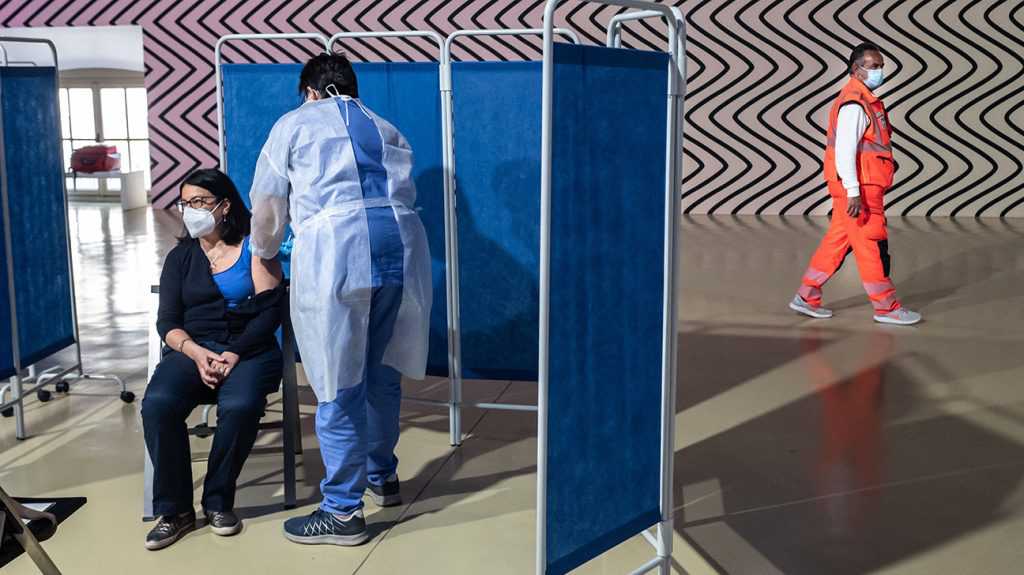Real-world data: mRNA vaccines reduce threat of infection by 91%
09 June, 2021

According to a fresh evaluation by the Centers designed for Disease Control and Prevention (CDC), COVID-19 mRNA vaccines reduce an infection risk simply by 91% after two doses and 81% after one dose.
The analysis also concludes that those that conduct have a SARS-CoV-2 infection experience more slight illness.
Likewise, the few that carry out develop COVID-19 are sick for less period.
In a fresh press releaseTrusted Source, the Centers for Disease Control and Prevention (CDC) outline the most recent results from the so-named HEROES-RECOVER study.
The study is probably the first to demonstrate that the Pfizer-BioNTech and Moderna vaccines benefit persons who get COVID-19 despite getting full or partial vaccinations.
The HEROES-RECOVER study includes data from individuals who have increased potential contact with SARS-CoV-2, including healthcare workers, frontline workers, and first responders.
The experts released preliminary resultsTrusted Source from the HEROES-RECOVER analysis in March 2021. In those days, they figured “[a]uthorized mRNA COVID-19 vaccines work for preventing SARS-CoV-2 an infection in real-world conditions.”
Following the initial evaluation, the CDC continuing to fully capture data. The hottest news release draws upon an additional four weeks of data.
Fresh details about mRNA vaccines
The most recent analysis uses data from 3,975 participants in eight parts of the United Claims. Each person received assessment for SARS-CoV-2 illness once each week for 17 weeks, from December 13, 2020, to April 10, 2021.
The researchers screened positive tests further to evaluate viral load. In addition they measured how extended the participants tested confident for SARS-CoV-2 to look for the charge of viral shedding.
Through the analysis, the scientists considered other points that may influence the results, including how often participants applied personal protective apparatus at work and locally and the circulation of SARS-CoV-2 in their local area.
Overall, the researchers concluded:
“Once fully vaccinated, individuals’ risk of illness was reduced by 91%. After partial vaccination, participants’ risk of an infection was reduced by 81%. These estimates included symptomatic and asymptomatic infections.”
COVID-19 following vaccination
To understand how vaccination influenced the span of a SARS-CoV-2 infection, the scientists compared those who designed the viral infection despite vaccination with those who had the virus but had not received vaccination.
This analysis demonstrated that people who received partial or full vaccination and produced COVID-19 were sick for 6 fewer days and spent 2 fewer days during intercourse than those who created COVID-19 and hadn't received vaccination.
In the same way, those vaccinated were approximately 60% less likely to develop symptoms, such as fever or chills, than those that were not.
Their findings also recommend that persons who develop COVID-19 and so are fully or partially vaccinated may be less likely to transmit the virus to other folks.
This, as the news release explains, is basically because “fully or partially vaccinated study participants experienced 40% less detectable virus within their nose […], and the virus was detected for 6 fewer days […] compared [with] those that had been unvaccinated when [acquiring the infection].”
The scientists also showed that those that received partial or full vaccination had the virus for a shorter time. Those vaccinated were 66% not as likely to have a positive test final result for a lot more than 1 week than unvaccinated persons with a SARS-CoV-2 illness.
As the press release explains, “While these indicators aren't a direct way of measuring a person’s ability to distributed the virus, they [have correlations] with a lower pass on of other viruses, such as varicella and influenza.”
Overall, the findings increase real-world facts that COVID-19 vaccines will be the best way to lessen the quantity of COVID-19 conditions, minimize severe illness, and prevent the spread. The news release ends by noting:
”[T]he study results support CDC’s suggestion to get completely vaccinated against COVID-19 once you can. Everyone 12 years and old is currently eligible to get a COVID-19 vaccination in the U.S.”
Source: www.medicalnewstoday.com
TAG(s):
